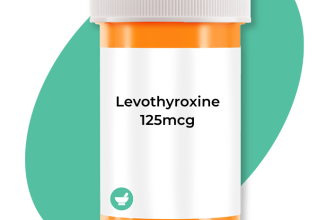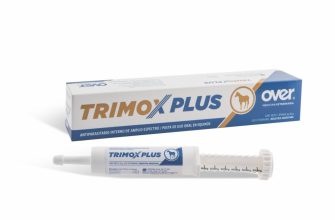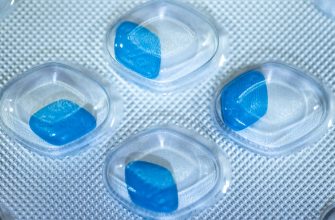Yes, Clomid can cause weight gain for some women. Studies show weight fluctuations are a common side effect, with reports suggesting an average increase of 2-5 pounds. This isn’t guaranteed, however; many women experience no significant changes in weight. The reason behind this variability is complex, encompassing individual metabolic responses and other factors.
Factors influencing weight change include increased appetite, water retention, and changes in body composition. Increased appetite is often attributed to hormonal shifts caused by Clomid, while water retention is a more immediate effect. These factors, coupled with potential changes to exercise routines and dietary habits stemming from treatment, contribute to the overall weight change experienced.
Managing potential weight gain involves proactive steps. Maintaining a balanced diet rich in fruits, vegetables, and lean protein is crucial. Regular exercise, even moderate activity like daily walks, can significantly aid in counteracting weight increase. Open communication with your doctor is also vital; they can offer personalized guidance and address any concerns. Remember, individual results vary considerably.
Consider consulting a registered dietitian for tailored dietary advice, especially if weight gain becomes a significant concern. They can help you create a nutrition plan that supports your overall health during Clomid treatment, helping you manage potential side effects and meet your health goals.
- Clomid Weight Gain: A Detailed Overview
- Factors Influencing Weight Change
- Managing Weight While on Clomid
- Specific Dietary Recommendations
- Understanding Clomid and its Mechanism of Action
- Common Causes of Weight Gain Associated with Clomid
- Lifestyle Factors
- Underlying Medical Conditions
- Lifestyle Modifications to Mitigate Clomid-Induced Weight Gain
- Dietary Strategies for Managing Clomid Weight Gain
- Seeking Professional Guidance: When to Consult a Doctor
Clomid Weight Gain: A Detailed Overview
Weight fluctuations are a common side effect of Clomid. Understand that this isn’t always significant, but awareness is key.
Factors Influencing Weight Change
- Water Retention: Clomid can cause your body to retain water, leading to a temporary increase in weight. This usually resolves once you stop taking the medication.
- Increased Appetite: Some users report an increase in appetite while on Clomid. Careful monitoring of food intake is crucial to manage this.
- Hormonal Shifts: Clomid affects hormone levels. These changes can indirectly influence weight by altering metabolism and fat distribution.
- Individual Metabolism: Your unique metabolism plays a significant role in how your body reacts to Clomid. What one person experiences, another may not.
Managing potential weight gain requires a proactive approach.
Managing Weight While on Clomid
- Maintain a Balanced Diet: Focus on nutrient-rich foods and portion control. Consult a registered dietitian for personalized guidance.
- Regular Exercise: Incorporate regular physical activity into your routine. Aim for a combination of cardio and strength training.
- Hydration: Drink plenty of water throughout the day. Adequate hydration can help manage water retention.
- Monitor Your Weight: Track your weight regularly, but avoid obsessing. Focus on overall health rather than solely on the number on the scale.
- Consult Your Doctor: Discuss any concerns about weight gain with your doctor. They can provide tailored advice and monitor your progress.
Specific Dietary Recommendations
- Prioritize lean proteins.
- Include plenty of fruits and vegetables.
- Limit processed foods, sugary drinks, and unhealthy fats.
Remember, consistency is key. Adopting these healthy habits can help you manage your weight effectively while taking Clomid.
Understanding Clomid and its Mechanism of Action
Clomid, or clomiphene citrate, functions primarily by blocking estrogen receptors in the hypothalamus and pituitary gland. This blockage tricks your body into thinking estrogen levels are low.
In response, the hypothalamus increases GnRH (gonadotropin-releasing hormone) production. This, in turn, stimulates the pituitary gland to release more follicle-stimulating hormone (FSH) and luteinizing hormone (LH).
Increased FSH and LH levels are key. They prompt the ovaries to develop follicles and potentially release an egg, leading to ovulation. This is Clomid’s main mechanism for boosting fertility.
It’s important to note that Clomid’s effects vary. Some women experience a significant increase in FSH and LH, while others have a more modest response. Individual responses depend on factors like age, ovarian reserve, and overall health.
Clomid’s impact on weight is indirect. Fluid retention, a potential side effect, can contribute to weight gain. However, the mechanism of weight gain isn’t directly linked to Clomid’s primary function of stimulating ovulation. Changes in appetite or metabolism may also play a role in weight fluctuations.
Consult your doctor for a personalized assessment. They can explain the potential benefits and risks of Clomid, considering your specific circumstances.
Common Causes of Weight Gain Associated with Clomid
Clomid can lead to weight gain through several mechanisms. Fluid retention is a common side effect, causing a noticeable increase on the scale. This is due to Clomid’s impact on hormone levels, particularly estrogen. Many women report a bloating sensation alongside this fluid retention. Diet changes are also often implicated; increased appetite is a frequently cited side effect, potentially leading to higher calorie intake. This can be exacerbated by cravings for carbohydrates.
Lifestyle Factors
Clomid’s impact on insulin levels can contribute to weight gain. Insulin regulates blood sugar and its disruption can affect metabolism and fat storage. Increased carbohydrate tolerance can lead to changes in eating patterns if not managed consciously. Remember, regular exercise and a balanced diet are always crucial for maintaining a healthy weight, regardless of medication. Tracking your food intake and exercise can offer valuable insight into how these factors interact. Consult your doctor for personalized advice concerning diet and exercise while taking Clomid.
Underlying Medical Conditions
Pre-existing conditions can also influence weight gain alongside Clomid. Polycystic ovary syndrome (PCOS), a common reason for Clomid prescription, is often associated with weight gain itself. Therefore, weight changes during Clomid treatment may partly reflect the underlying condition and not solely Clomid’s effects. Addressing these pre-existing conditions alongside appropriate lifestyle modifications is key to mitigating weight gain.
Lifestyle Modifications to Mitigate Clomid-Induced Weight Gain
Prioritize a balanced diet rich in lean protein, whole grains, and fruits and vegetables. Aim for a calorie deficit if weight gain is a concern. Focus on nutrient-dense foods to maximize satiety and minimize cravings.
Incorporate regular exercise into your routine. Aim for at least 150 minutes of moderate-intensity aerobic activity per week, combined with strength training exercises twice a week. This helps boost metabolism and burn calories.
Manage stress levels through relaxation techniques like yoga, meditation, or deep breathing exercises. Stress can contribute to weight gain, so finding healthy coping mechanisms is vital.
Stay hydrated by drinking plenty of water throughout the day. Water helps you feel full, aids digestion, and supports overall bodily functions.
Monitor your food intake and track your progress. A food journal can help you identify patterns and make informed choices about your diet. Consider consulting a registered dietitian or nutritionist for personalized guidance.
| Lifestyle Change | Specific Action |
|---|---|
| Diet | Increase protein intake, reduce processed foods, and choose whole grains. |
| Exercise | 30 minutes of brisk walking most days, plus strength training twice a week. |
| Stress Management | Practice mindfulness meditation for 10 minutes daily. |
| Hydration | Drink at least 8 glasses of water per day. |
| Monitoring | Keep a food diary and weigh yourself weekly. |
Remember to consult your doctor or fertility specialist before making significant dietary or exercise changes, especially while taking Clomid.
Dietary Strategies for Managing Clomid Weight Gain
Prioritize whole, unprocessed foods. Focus on lean protein sources like chicken breast, fish, and beans. These help you feel full and support muscle mass, counteracting potential weight gain.
Increase your intake of fiber-rich foods such as fruits, vegetables, and whole grains. Fiber promotes satiety and aids digestion, potentially mitigating bloating and water retention often associated with Clomid.
Choose complex carbohydrates over simple sugars. Opt for brown rice, quinoa, and sweet potatoes instead of white bread, sugary cereals, and processed snacks. This helps regulate blood sugar levels and prevents energy crashes that can lead to overeating.
Reduce your intake of saturated and unhealthy fats found in processed foods, fried foods, and red meat. Favor healthy fats like avocados, nuts, and olive oil for heart health and overall well-being.
Drink plenty of water throughout the day. Adequate hydration supports metabolism and can help minimize fluid retention.
Monitor your calorie intake. A registered dietitian can help you create a personalized meal plan to support your weight management goals while taking Clomid.
Limit alcohol consumption. Alcoholic beverages are high in calories and can contribute to weight gain.
Regular physical activity complements a healthy diet. Incorporate at least 30 minutes of moderate-intensity exercise most days of the week.
Consult your doctor or a registered dietitian. They can provide personalized guidance and address any specific dietary concerns related to your Clomid use and overall health.
Seeking Professional Guidance: When to Consult a Doctor
Schedule a doctor’s appointment if you experience unexplained weight gain exceeding 5 pounds in a month while taking Clomid. This warrants investigation to rule out other contributing factors.
- Significant weight changes: Contact your physician immediately if you gain or lose more than 10 pounds unexpectedly.
- Persistent bloating: If bloating persists despite dietary changes and is accompanied by other symptoms like pain, consult your doctor.
- Fluid retention: Swelling in your hands, feet, or face could indicate a problem requiring medical attention. Discuss this with your doctor.
- Severe mood swings: Clomid can affect mood; however, significant or unpredictable shifts require medical evaluation.
- Vision changes: Blurred vision, flashes of light, or any changes in your vision necessitate immediate medical attention.
- Severe abdominal pain: Don’t hesitate to seek medical care for severe or persistent abdominal pain.
- Shortness of breath: Difficulty breathing warrants immediate medical attention, regardless of medication use.
- Unusual vaginal bleeding: Any unusual bleeding patterns should be reviewed by a physician.
Remember, open communication with your doctor is key. Don’t hesitate to address any concerns you may have, even if they seem minor. Your doctor can help you understand the potential side effects of Clomid and manage them effectively.
- Track your weight and symptoms diligently. This information is invaluable during your consultation.
- Keep a record of your medication dosage and schedule. This helps your doctor assess your treatment.
- Be prepared to discuss your medical history and lifestyle. This context is crucial for accurate diagnosis and treatment recommendations.










